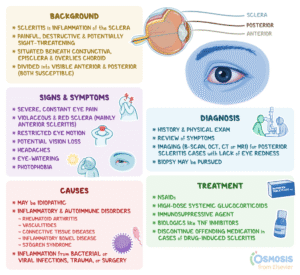How to Boost Metabolism_ 11 Easy Ways That Work
11 Proven Ways to Naturally Boost Your Metabolism
Read Time: 7 mins
A robust metabolism is the cornerstone of energy, weight management, and overall wellness. By converting food into usable energy, your metabolism powers daily activities and long-term health. Fortunately, simple lifestyle changes can enhance your metabolic rate, helping you feel energized and avoid issues like fatigue, weight gain, or mood imbalances. This guide outlines 11 science-backed, natural strategies to supercharge your metabolism effectively.
What Is Metabolism?
Metabolism is your body’s process of transforming calories from food into energy for cellular functions, such as breathing, digestion, and movement. Regulated by the thyroid gland, it determines how efficiently your body burns calories. A sluggish metabolism can lead to weight gain, low energy, and other health challenges, while a faster one supports vitality and balance.
Signs of a Slow Metabolism
A sluggish metabolism may manifest through:
- Unintended weight gain or difficulty losing weight
- Persistent fatigue
- Feeling cold frequently
- Cravings for sugar or carbs
- Slow wound healing
- Hair loss or brittle nails
- Mood swings, anxiety, or depression
- Digestive issues like constipation or bloating
Conditions like hypothyroidism (low thyroid activity) can further slow metabolism, often requiring medical intervention alongside lifestyle adjustments.
11 Effective Ways to Boost Your Metabolism
Incorporate these practical, evidence-based strategies to rev up your metabolism naturally and sustain long-term health.
1. Prioritize Protein-Rich Foods
Protein-packed diets, including lean meats, eggs, fish, nuts, and legumes, increase calorie burn due to their high thermic effect (the energy required to digest food). Studies show protein digestion burns 15–30% more calories than carbs or fats, potentially adding up to 300 extra calories burned daily.
- Tip: Add grilled chicken, tofu, or lentils to meals for a metabolic boost.
2. Stay Hydrated with Water
Water is essential for metabolic processes, as it supports cell function and calorie burning. Research indicates that drinking 500 ml of water can temporarily increase metabolic rate by 24–30% for up to an hour.
- Tip: Carry a reusable water bottle and aim for 8–10 glasses daily.
3. Incorporate High-Intensity Interval Training (HIIT)
HIIT workouts, which alternate intense bursts of exercise with low-intensity recovery, elevate metabolism significantly. A single HIIT session can increase resting energy expenditure for hours afterward, outpacing steady-state cardio.
- Tip: Try a 20-minute HIIT routine with sprints or bodyweight exercises 2–3 times weekly.
4. Build Muscle with Strength Training
Strength training, such as lifting weights or using resistance bands, boosts resting metabolic rate by increasing muscle mass. Muscle burns more calories at rest than fat, with studies showing regular strength trainers burn up to 265 additional calories daily.
- Tip: Start with bodyweight exercises like squats or push-ups if you’re new to strength training.
5. Sip Green or Oolong Tea
Green and oolong teas contain caffeine and catechins, compounds that may enhance fat oxidation and metabolic function. Regular consumption has been linked to a modest increase in calorie burning, especially when paired with exercise.
- Tip: Swap sugary drinks for 1–2 cups of unsweetened green tea daily.
6. Spice Up Your Meals
Spicy foods containing capsaicin, like chili peppers, can temporarily boost metabolism by increasing thermogenesis (heat production). Research suggests capsaicin-rich diets may improve metabolic health and support weight management.
- Tip: Add a pinch of cayenne pepper or fresh chilies to soups, stir-fries, or sauces.
7. Prioritize Quality Sleep
Adequate sleep (7–8 hours nightly for adults) supports metabolic health by regulating hormones that control hunger and energy use. Sleep deprivation increases cortisol and appetite, raising the risk of weight gain and metabolic slowdown.
- Tip: Create a sleep-friendly environment by keeping your bedroom dark, quiet, and device-free.
8. Harness the Power of Caffeine
Caffeine in coffee, tea, or energy drinks stimulates the central nervous system, increasing metabolic rate by 3–11%. A Studies show that 4 cups of coffee daily for 6 months led to a 4% reduction in body fat without other lifestyle changes.
- Tip: Limit caffeine to 1–3 cups daily to avoid jitteriness or sleep disruption.
9. Stand and Move More
A sedentary lifestyle slows metabolism and increases health risks like obesity. Standing or walking breaks every 30 minutes can enhance metabolic health, particularly for those with desk jobs.
- Tip: Set a timer to stand, stretch, or walk for 1–2 minutes every half-hour.
10. Avoid Crash Diets
Extreme calorie restriction from crash diets can lower metabolic rate by reducing muscle mass and depriving the body of essential nutrients. Sustainable, balanced diets with adequate protein and variety maintain metabolic health.
- Tip: Focus on whole foods like vegetables, lean proteins, and healthy fats for lasting results.
11. Manage Stress Levels
Chronic stress elevates cortisol, which redirects energy away from metabolism, potentially slowing it down. Long-term stress can contribute to weight gain and metabolic dysfunction.
- Tip: Practice stress-relief techniques like meditation, deep breathing, or yoga for 10–15 minutes daily.
Factors Influencing Metabolism
Your metabolic rate is shaped by both controllable and uncontrollable factors.
Modifiable Factors
- Diet: High-protein, nutrient-dense foods boost metabolism.
- Exercise: Regular physical activity, especially strength and HIIT, increases calorie burn.
- Sleep: Consistent, quality sleep supports metabolic regulation.
- Hydration: Adequate water intake enhances cellular efficiency.
- Stress Management: Lowering cortisol through relaxation techniques aids metabolism.
Non-Modifiable Factors
- Age: Metabolism naturally slows with age due to muscle loss.
- Gender: Men typically have higher metabolic rates due to greater muscle mass.
- Genetics: Inherited traits influence baseline metabolic rate.
- Medical Conditions: Disorders like hypothyroidism or polycystic ovary syndrome can slow metabolism.
Key Takeaways
- Boost metabolism naturally with protein-rich foods, hydration, exercise, and quality sleep.
- Avoid crash diets and manage stress to maintain a healthy metabolic rate.
- Small, consistent changes like standing more or drinking green tea can yield significant results.
- Consult a healthcare provider if you suspect a medical condition like hypothyroidism is affecting your metabolism.
Frequently Asked Questions
Can metabolism be permanently slowed by dieting?
Crash diets may temporarily lower metabolism by reducing muscle mass, but a balanced diet and exercise can restore it over time.
How does hypothyroidism affect metabolism?
Hypothyroidism reduces thyroid hormone production, slowing metabolism and leading to weight gain, fatigue, and other symptoms. Treatment often includes hormone replacement and lifestyle changes.
Are metabolism-boosting supplements effective?
Most supplements lack strong evidence for boosting metabolism significantly. Focus on diet, exercise, and sleep for sustainable results.
Join Our Wellness Community
Want more tips to optimize your health and metabolism? Subscribe to our newsletter for weekly advice, recipes, and fitness ideas tailored to your lifestyle!


